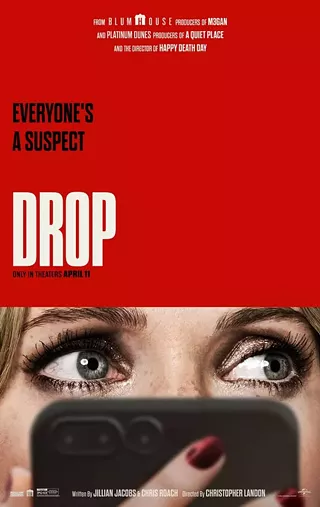No matter the country, it's common to see the same thing in many movies: A good story done in by bad storytelling.
American films might be a little more obvious about it (or maybe we just see a much-heavier concentration of them), but there are countless movies from around the world turned in by filmmakers who seem like they have really good ideas, but never flesh them out.
The subtle Italian comedy We Have a Pope establishes a wonderful premise—the newly elected head of the Roman Catholic Church not only doesn't want the job, but finds himself having a crisis of conscience—but it lacks the inertia to do much else with it. The title comes from the Latin phrase Habemus Papam, which signals the election of a new pontiff at the Vatican, and that's where the action of the film—such as it is—picks up.
In a surprisingly long opening sequence, the papal conclave selects Cardinal Melville (Michel Piccoli) as the new leader of the church, and almost instantly, he feels overwhelmed by the ascension. Moments before he is to be introduced to the thousands gathered at St. Peter's Basilica—and the billion or so Catholics around the world—Cardinal Melville pulls a runaway bride, dashing through the Vatican to find solitude.
The official party line is that the new pope has chosen to seek guidance through prayer, and that all will be well very soon. In reality, he's gone into therapy. His nameless analyst (Nanni Moretti, who also directs) makes little headway, because the church limits the topics of discussion. He's also forced to stay in the Vatican until the new pope re-emerges, with no contact with the outside world.
Desperate for a solution, the spokesman for the church (Jerzy Stuhr) takes Cardinal Melville to another therapist, this one well outside of the confines of the center of Roman Catholicism, and completely anonymous. And here, the new pope opens up: He always wanted to be an actor, memorized mountains of Chekhov, and lives for the theater. This could have been handled in a silly way, because it is a 90-degree turn from the life he ultimately chose. But instead, Moretti (as the director) and Piccoli truly make it the man's long-lost passion. It humanizes him.
Once he realizes that he's made a huge career mistake, the pope-elect goes AWOL. The church never revealed who was elected at the conclave, so Melville is able to wander anonymously around Rome with his thoughts and on his time. It's a great little walkabout, although as the heart of a movie, it doesn't beat nearly strong enough.
Whether or not the experience inside the Vatican is close to a real conclave, it's delivered with authenticity in We Have a Pope. It looks right, and it feels right. The entire experience in the Vatican is believable, depicting a world that so many people would love to know more about, but likely never will. Piccoli is terrific, whether or not Cardinal Melville musters the courage to lead the Catholic Church. That's the good news.
The bad news is nothing much happens. Moretti's analyst character is literally and figuratively stranded in the Vatican. He can't leave, and he has nothing to do while he's there. There could also be a lot more hand-wringing about the disappearance of the most important religious figure on the planet, but the spokesman is mostly unflappable in the face of an absolute PR disaster.
While it does have that great central performance and a smart concept, the what-could-have-been in We Have a Pope is so much more entertaining than the what-it-is.









